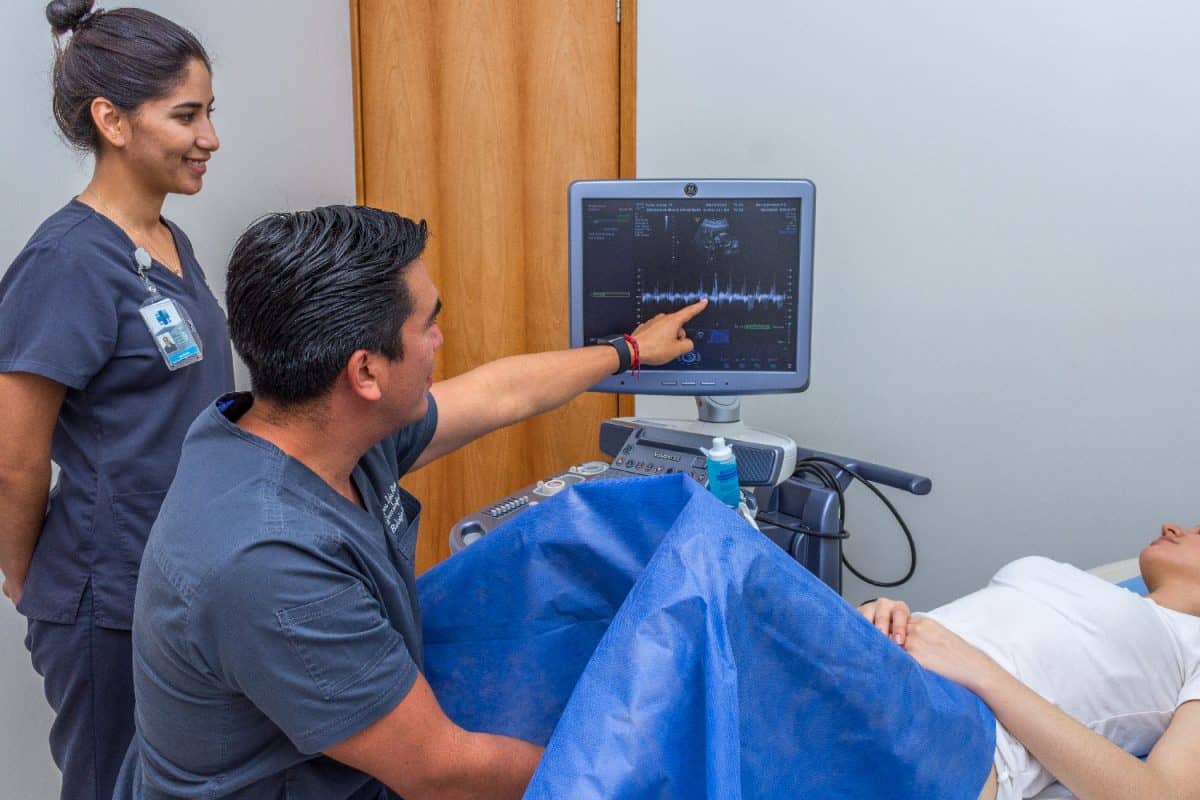[bt_section][bt_row][bt_column width=”3/4″][bt_hr top_spaced=”not-spaced” bottom_spaced=”bottomSemiSpaced” transparent_border=”noBorder” el_class=”” el_style=”” responsive=””][/bt_hr][bt_text]
Contents
Fertility Work-Ups Q & A
by Sam Najmabadi, MD
What is a fertility work-up?
Fertility workups are also known as fertility testing. This is the first step for women or couples who are struggling to conceive naturally. On average, a woman becomes pregnant with a year of having unprotected intercourse, so the recommended period of time to try is 12 months. Women over the age of 35 or at risk of other complications, should seek assistance after approximately six months. It is important to remember that conceiving is a two-person activity and it is just as likely for the fertility issue to lie with either partner. Potential parents will need to work together and support each other through the testing and treatment for fertility issues. Some of the procedures include:
- Female Hormonal Assays: This is hormonal testing recommended when there are irregularities in the menstrual cycle or physical exam. Click here for more information.
- Male Hormonal Assays: This is hormone testing for the male partner to determine what may contribute to fertility issues. Click here for more information.
- Ovarian Reserve Screening: This test predicts a woman’s reproductive potential by measuring the supply of eggs available at a certain time. Click here for more information.
- Semen Diagnostic Testing: This test evaluates the amount and quality of sperm produced. Click here for more information.
- Hysterosalpingogram: This test screens for blockages in the fallopian tubes or uterus that could prevent pregnancy. Click here for more information.
- Saline Infusion Sonography: This test checks for abnormalities in the uterus such as scarring, fibroids or polyps. Click here for more information.
- Laparoscopy: This is a minimally invasive procedure which allows the doctor to look closely at the abdominal and pelvic organs. Click here for more information.
- Hysteroscopy: This minimally invasive procedure allows the doctor to see inside the uterus to diagnose any abnormalities. Click here for more information.
What fertility tests are done for women?
Female hormone testing is often recommended when female patients report irregular menstrual cycles. Female hormonal screening checks the levels of anti-mullerien hormone, which is produced by the ovary and reflects ovarian reserve and viable eggs in a cycle. Testing also checks inhibin B, estrogen, progesterone, follicle stimulating hormones and luteinizing hormones as these are all integral to the production of viable ova. Women also have tests to measure their testosterone levels and thyroid function as these hormones can affect fertility. Women may also have ovarian reserve screening, which checks the supply of eggs a woman has at the time. The number and health of the available eggs can be evaluated with this screening. Female patients may also be checked for physical issues like blockages in the fallopian tubes or issues like scarring of the uterine lining, uterine fibroids or endometrial polyps. In some cases where the screenings are inconclusive, the doctor may order more invasive testing like hysteroscopy and laparoscopy to actually look inside the uterus to identify any physical issues impeding fertility.
What tests are typically carried out on men?
Men are also subject to hormonal screenings. This includes tests for follicle stimulating hormones (FSH) and luteinizing hormones (LH). These tests check that the body is hormonally balanced to produce sperm and testosterone. Low levels of either of these hormones can mean that the testicles are not receiving sufficient stimulatory messages. Men also have their testosterone levels screened. Testosterone stimulates sperm production. Men are also frequently required to provide semen samples to be tested for quantity and quality of sperm cells present in the fluid.
[/bt_text][bt_hr top_spaced=”not-spaced” bottom_spaced=”bottomSemiSpaced” transparent_border=”noBorder” el_class=”” el_style=”” responsive=””][/bt_hr][/bt_column][bt_column width=”1/4″][bt_hr top_spaced=”topSpaced” bottom_spaced=”bottomSemiSpaced” transparent_border=”noBorder” el_class=”” el_style=”” responsive=””][/bt_hr][bt_header superheadline=”” headline=”SERVICES” headline_size=”small” dash=”bottom” dash_style=”btNormalDash” subheadline=”” el_class=”” el_style=””][/bt_header][bt_text]
- In Vitro Fertilization
- On Site IVF Laboratory & Surgical Facilities
- Low Tech Reproductive Treatments
- Fertility Work-Ups
- PGD
- Embryoscope
- Fertility Preservation
- Surrogacy
- Egg Donation
- Ovarian Rejuvenation PRP
[/bt_text][bt_text]
Free Skype Consultation
[/bt_text][/bt_column][/bt_row][/bt_section]

